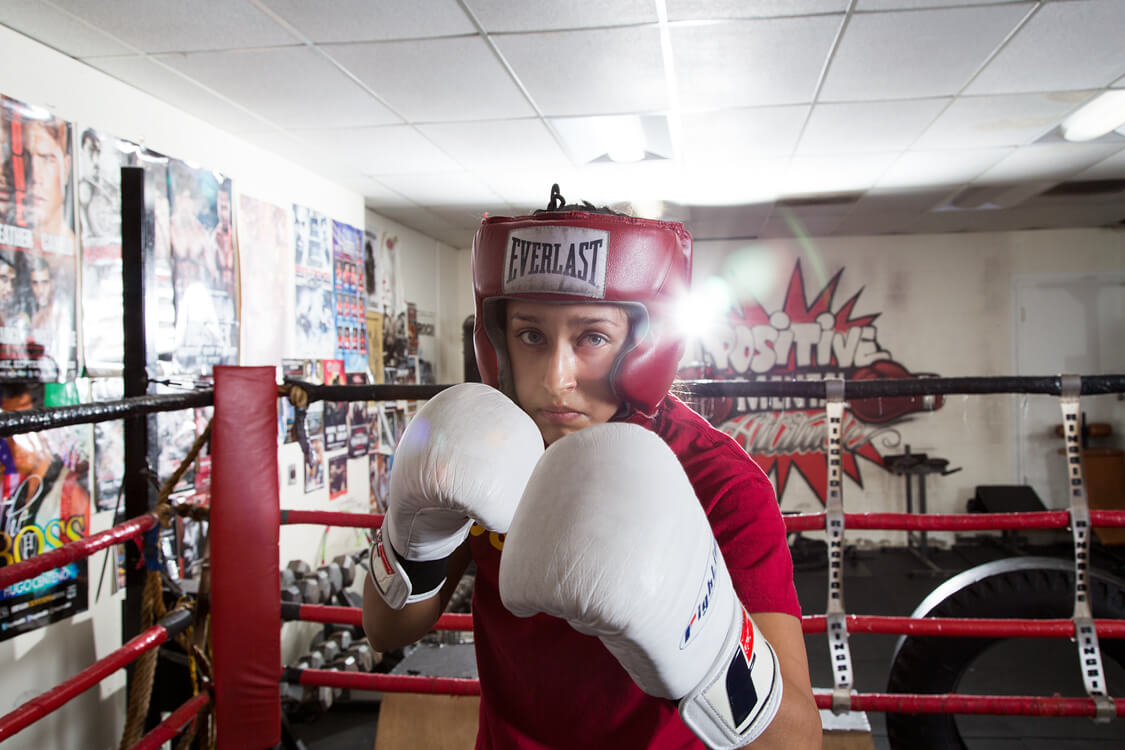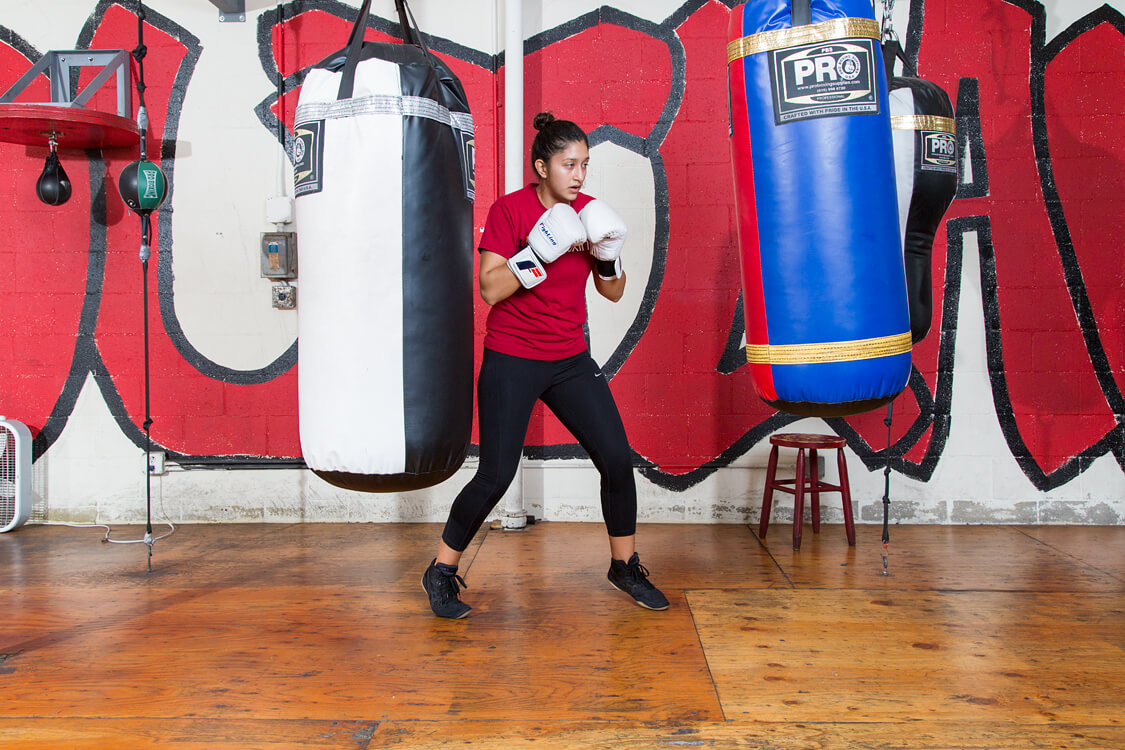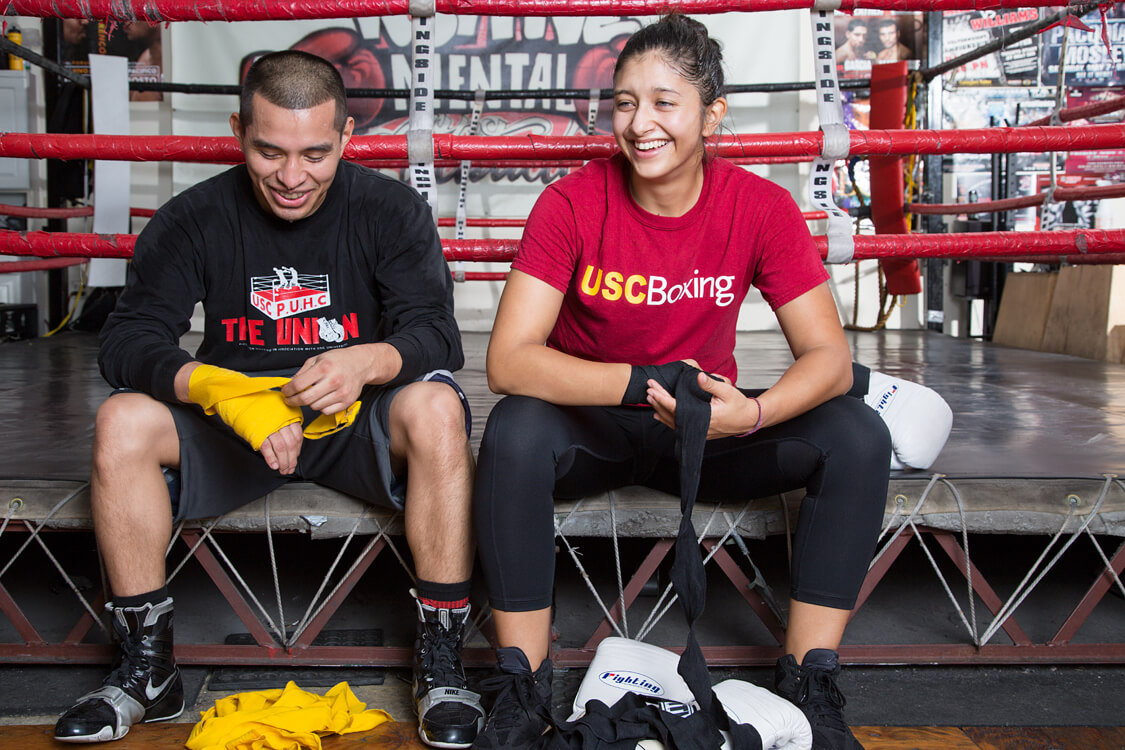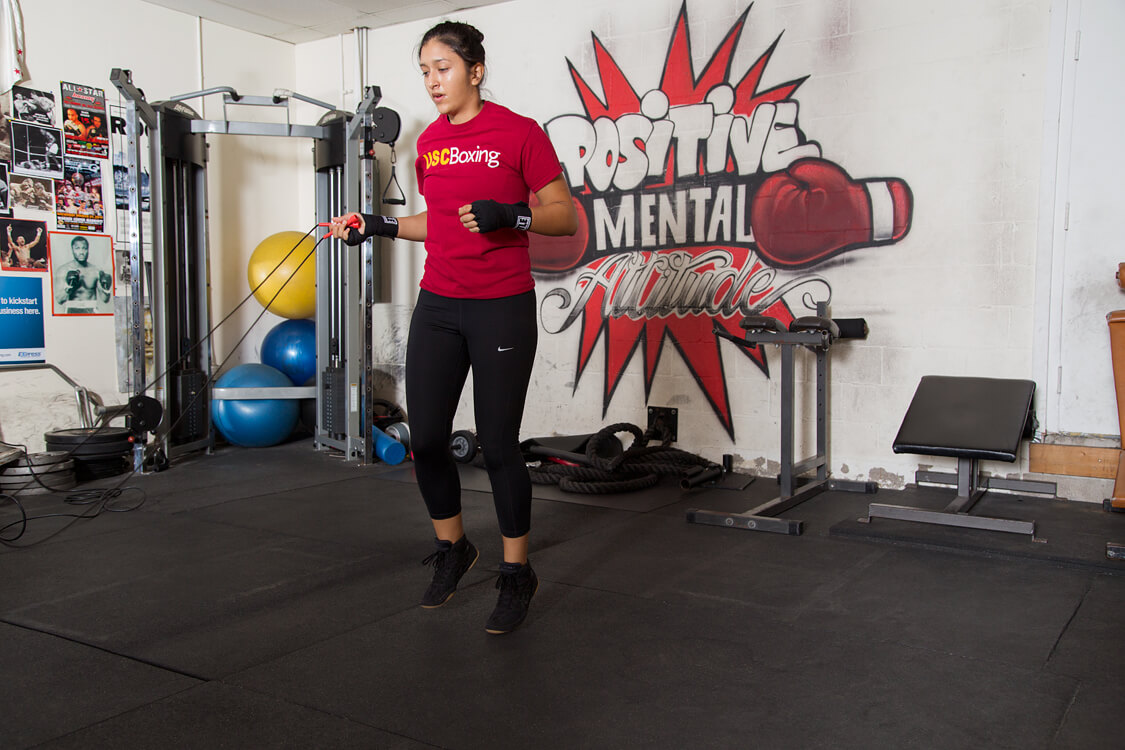When the gym shut down, she put on boxing gloves
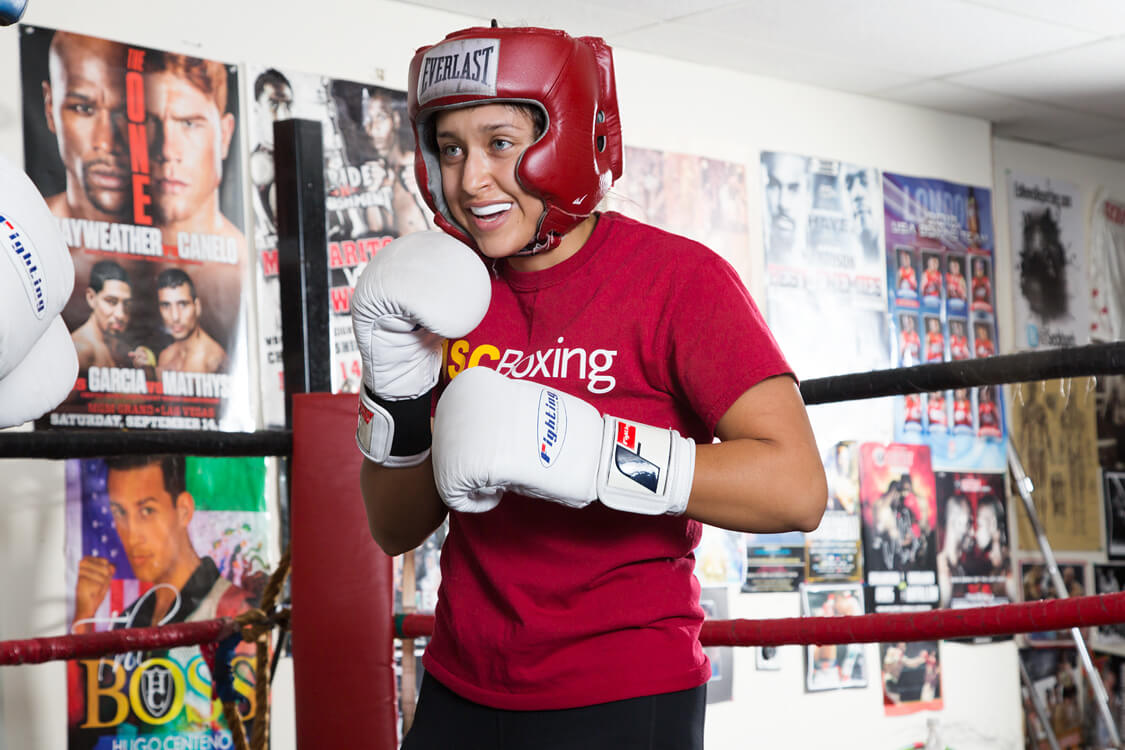 There are many famous gyms in the boxing world. Fifth Street Gym in Miami Beach, where Floyd Patterson and a kid named Cassius Clay became legends. Wild Card Boxing Club in Hollywood, where Manny Pacquiao trains. Front Street in Philadelphia, Kronk in Detroit, Gleason’s in Brooklyn. But there is only one Pico-Union Boxing Gym, and for six years it has been the alpha and omega to hundreds of inner-city youth.
There are many famous gyms in the boxing world. Fifth Street Gym in Miami Beach, where Floyd Patterson and a kid named Cassius Clay became legends. Wild Card Boxing Club in Hollywood, where Manny Pacquiao trains. Front Street in Philadelphia, Kronk in Detroit, Gleason’s in Brooklyn. But there is only one Pico-Union Boxing Gym, and for six years it has been the alpha and omega to hundreds of inner-city youth.
When disputes with a local housing authority shut down the gym, its head coach, Michelle Muñoz, B.S. EE ’16, vowed to reopen it in a new location and keep the dream alive for the young athletes she trains.
“For some, it’s the only place where they can exercise,” Muñoz said. “It’s a sanctuary.”
Pico-Union has seen more than 400 youth come through its doors — young Angelenos like Adrian Cruz Hernandez.
With his father out of the picture, Hernandez was forced to grow up quickly. At 16, he became the family’s only breadwinner when his mom was diagnosed with cancer. School was a luxury he couldn’t afford.
“It was the one place where I felt bathed in calm,” Hernandez said about the gym. “It was my life.”
Hernandez found mentors in Muñoz and Ramon Espada, head coach of USC Boxing. Together they trained him to win his first amateur fight.
“The vehicle is boxing,” Espada reminded him. “But the destination is college.”
Now with a high school diploma in hand, Hernandez is applying to colleges. He said it helps to get life advice from a fellow fighter like Muñoz.
Muñoz doesn’t come from a boxing family. The daughter of a history professor and a kindergarten teacher, her parents emigrated from Chile to Azusa, California, for better a life. She repaid their sacrifice by becoming an honor student.
She chose USC because of its engineering excellence and generous scholarship. But what also hooked her, in a big way, was USC Boxing, especially when she heard what the student club was doing in the community.
Muñoz — by then the best female boxer at USC — was chosen as the kids’ head coach.
She would regularly take them on runs from Pico-Union, through USC campus. There they would put on their hoodies and run a little taller and straighter past Tommy Trojan, up to Staples Center, circling Oscar De La Hoya’s statue where each would stop to have their Rocky moment.
WShe did all this between a full course load, two part-time jobs, and kicking butt in the ring. “She became their anchor,” Espada said. “What was special was that neighborhood kids who normally didn’t interact with college students were interacting with them every day.”
But last summer, the housing authority that gave them the space abruptly ended their contract. Suddenly and without warning, the Pico-Union Boxing Gym was shut down. In the weeks that followed, Muñoz personally visited each of her students, encouraging them not to quit.
She offered to continue training those who could make the 24-mile commute to a temporary home at Outlaws Gym in Reseda. Meanwhile, she’s waiting for permits to clear at a closer location in Echo Park.
For now, what remains of the gym is crammed into a small storage unit collecting dust and awaiting the day when Muñoz and the Trojans of USC Boxing will roll out the mats, drill in the bags and open the doors. Muñoz is not ready to concede. “Champions come from places like this,” she said. The image of them running together is a striking impression that she refers to repeatedly:
“My father came to this country with nothing. We, as a family, began with little. One thing I know is…” she said, quoting an old African Proverb: “‘If you want to go fast, go alone. If you want to go far, go together.’”




